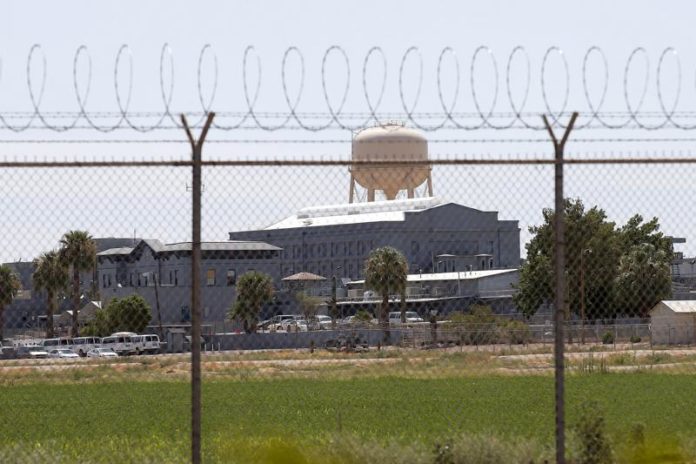
Arizona is appealing a withering federal court ruling that threw out a 6-year-old legal settlement that required the state to improve health care for thousands of prisoners.
Arizona corrections officials said in court records Monday that they planned to appeal the July 16 decision by Judge Roslyn Silver, who concluded officials showed little interest in complying with their obligations under the deal and scheduled a Nov. 1 trial to decide the case.
The Arizona Department of Corrections, Rehabilitation, and Reentry declined to comment on the basis for its appeal.
Corene Kendrick, one of the lawyers representing prisoners in the class-action lawsuit, said appealing the decision is a desperate move.
“It shows the department and the state are very worried about going to trial because they are going to have to defend an indefensible system,” Kendrick said. “So instead of preparing for trial or reforming the system, they are yet again spending taxpayer money on litigation.”
Over the last several years, Arizona corrections officials have been dogged by complaints that they have dragged their feet in fulfilling the state’s promises made in the settlement, which covered about 30,000 inmates in 10 state-run prisons.
Silver has said the $2.5 million in contempt-of-court fines issued against the state for non-compliance didn’t motivate the state to comply with the settlement.
In the past, the judge criticized the state for litigating every issue to its maximum extent and said some of the state’s appeals have been close to baseless.
In ending the settlement, Silver has said the state’s failure to provide adequate medical care for prisoners has led to suffering and preventable deaths.
In the nine years since it was filed, the lawsuit has cost the state $20 million, including $10 million for attorneys defending prison officials and $8.1 million for lawyers who pressed the case on behalf of inmates, according to records.
The settlement arose out of a lawsuit that alleged the state’s prisons didn’t meet the basic requirements for providing adequate medical and mental health care for prisoners. The lawsuit said some prisoners complained that their cancer went undetected or that they were told to pray to be cured after begging for treatment.
It also said the failure of the medical staff at one prison to diagnose an inmate’s metastasized cancer resulted in his liver enlarging so much that his stomach swelled to the size of a pregnant woman at full term. Another inmate who had a history of prostate cancer had to wait more than two years for a biopsy.
The state denied allegations that it was providing inadequate care, and the lawsuit was settled without the state acknowledging any wrongdoing.
Republished with the permission of the Associated Press.













